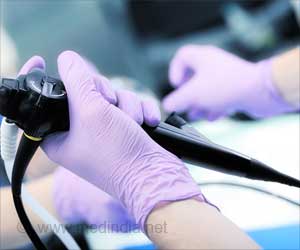Significant progress in women’s health was made this summer when the U.S. Food and Drug Administration (FDA) approved the first vaccine to prevent cervical cancer.
Significant progress in women’s health was made this summer when the U.S. Food and Drug Administration (FDA) approved the first vaccine to prevent cervical cancer. The vaccine was given the green light for use in younger women, as a way to protect against human papillomavirus (HPV), a sexually transmitted virus that causes cervical cancer.
“This is the first vaccine for a cancer ever developed,” said Phyllis Greenberger, president of the Society for Women’s Health Research and chair of the Partnership to Prevent Cervical Cancer, a coalition of American organizations and individuals dedicated to making the vaccine part of routine health care for all women in the United States. “Cervical cancer is the only cancer for which we know the cause and can provide a method of prevention that is successful in a vast majority of cases. This is a tremendous breakthrough that will save lives and reduce excess medical costs.”The FDA has deemed the vaccine safe and effective for girls and women ages nine to 26 and studies are underway to determine the vaccine’s usefulness for women over the age of 26 and for boys and men. Other vaccines are also in development.
“The Advisory Committee on Immunization Practices (a federal panel of 15 experts) has recommended the HPV vaccine for females ages 11-12,” explains Janet Gilsdorf, M.D., professor and director of pediatric infectious diseases at the University of Michigan Medical Center in Ann Arbor. “Females ages 13-26 should also be vaccinated.”
The vaccine is specifically recommended for girls 11-12 because researchers discovered that the maximum benefit from the vaccine occurs when it is given prior to the first sexual experience. The vaccine does not work as well for those who have already been exposed to the virus, but most women will still benefit from getting the vaccine because they will be protected against other virus types contained in the vaccine.
There are many different types of HPV, but only a select few can cause cervical cancer, Gilsdorf said. The HPV vaccine currently available may help guard against diseases that are caused by HPV Types 6, 11, 16, and 18. HPV Types 16 and 18 cause 70 percent of cervical cancer cases, and HPV Types 6 and 11 cause 90 percent of genital warts cases.
Roughly 80 percent of women will be infected by HPV by the age of 50, according to the Partnership to End Cervical Cancer.
Advertisement
The HPV vaccine requires three doses and the list price for each dose is $120. Some insurance companies will pay for the vaccine and Vaccines for Children (VFC), a federal program administered by the Centers of Disease Control and Prevention, will pay for HPV vaccination for children 18 years of age and under that are Medicaid eligible, uninsured, American Indian or Alaska Native.
Follow-up and compliance with the three-part vaccine may become an issue for some women, especially college-aged women who may not return to the doctor to get the complete vaccination.
For some parents, condoning the administration of a sexually transmitted disease vaccine in their pre-pubescent daughters may cause concern. Some parents may have a tough time accepting or imagining the sexual activity of their daughters.
If a woman has HPV or even cervical cancer, she may not realize it. In general, there are few to no symptoms of cervical precancers or early cancers. It may take years for an infection with HPV to turn into cervical cancer, although some cases progress more quickly. Catching the disease in the early stages is imperative to a good prognosis. This is why it is so important for women to have this disease on their radar screen.
Pap tests are still recommended as a crucial part of cervical cancer screening. They have dramatically reduced the number of cervical cancer deaths in the United States. The American Cancer Society currently recommends an annual pap test for all women, three years after the start of vaginal intercourse, but not later than 21 years of age.
Source-Newswise
SRM









